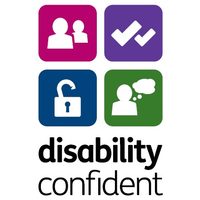About Legal Services
Being a lawyer or a judge is not the only career path available in the legal profession, there are numerous alternative job roles some requiring the same level of qualifications such as a Coroner or Crown prosecutor and others that require a good level of education but necessarily full qualifications such as a legal secretary, bailiff, court usher, licensed conveyancer.
Below is a snapshot of some of the alternative legal roles:
Paralegals: will assist lawyers in their work, undertaking some of the same work but not giving advice. They will often specialise in a particular area of law.
Coroners: inquire into all sudden deaths or reported deaths from unknown or unnatural causes.
Legal Secretary: will provide administrative support for lawyers and legal executives.
Crown Prosecutors: are responsible for examining police evidence and deciding whether the case is fair, there is enough evidence and it is likely to succeed in court.
Registrar: will collect and record details of births, stillbirths, deaths, marriages and civil partnerships. Will also perform marriages, civil partnerships, naming ceremonies at registry offices and other venues.
Bailiff: also know as enforcement officers collect debts by removing possessions and belongings from the person who owes the debt.
Court Ushers: make sure that everyone involved in the court case is in the right place at the right time to ensure the process runs smoothly.
Court Administrative Officers: will help with the day to day running of the courts, tasks will include booking dates and times for hearings, allocating cases to courtrooms, preparing lists of the day's court sessions, dealing with enquiries from the public.
Licensed Conveyancers: specialise in property law they work on behalf of their clients when buying or selling property and will deal with all legal matters, finance, administration and any other issues involved in the property transaction.
Apprenticeships
Legal Apprenticeships are relatively new, as with all apprenticeships they will last a minimum of 12 months, the actual length will depend on the level of the apprenticeship.
Level 2 - Intermediate Apprenticeship: Ideal for school leavers who wish to get into the legal environment straight from school and start learning about the world of work. Normally takes about 12-18 months
Level 3 - Advanced Apprenticeship: Next step up from Level 2, making it equivalent to A level in standard. It is also suitable for high calibre school leavers looking for a non-graduate route into a career as a paralegal. Normally take 18-24 months to complete.
Level 4 - Higher Apprenticeship: Appropriate for learners who already have a Level 3 qualification or equivalent. It is designed for people who already work in the legal environment. It takes about 24-30 months to complete.
Trailblazer Legal Apprenticeship: A new apprenticeship route to legal careers has been approved by the government which will allow apprentices to become legal executives, solicitors or paralegals through work based training.
The solicitor route will take five to six years to complete, and apprentices will need a minimum of five GCSEs, including maths and English at a grade C or above, and three A-levels, or equivalent.
For further details about legal apprenticeships see the CILEx (Chartered Institute of Legal Executives) website.
